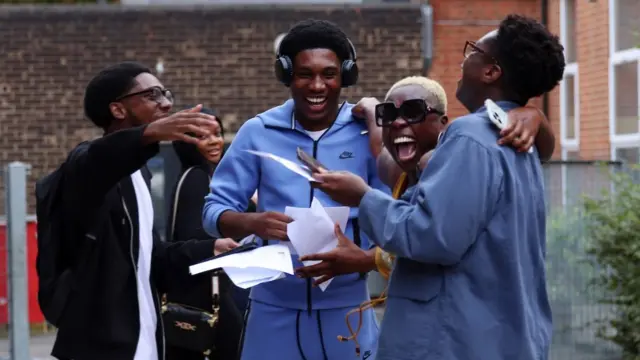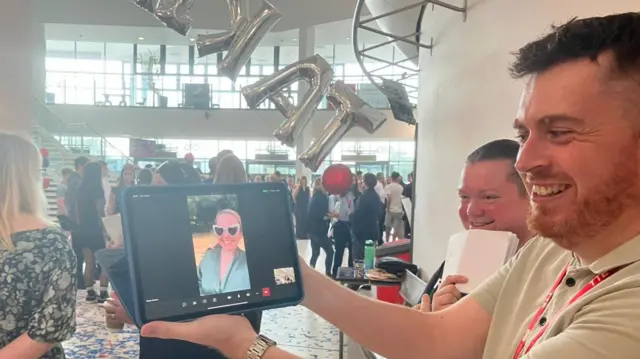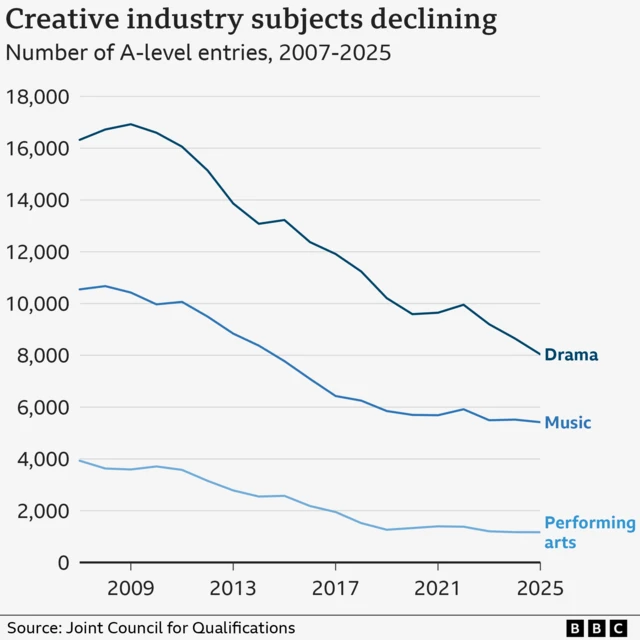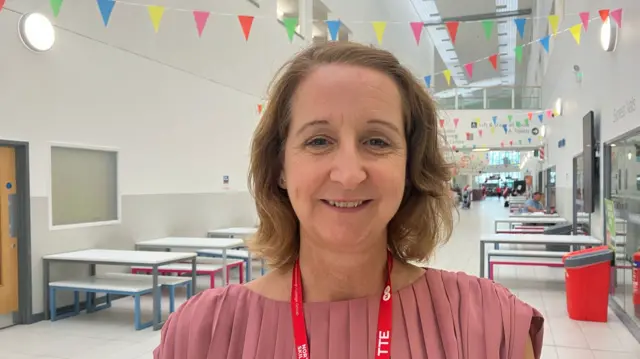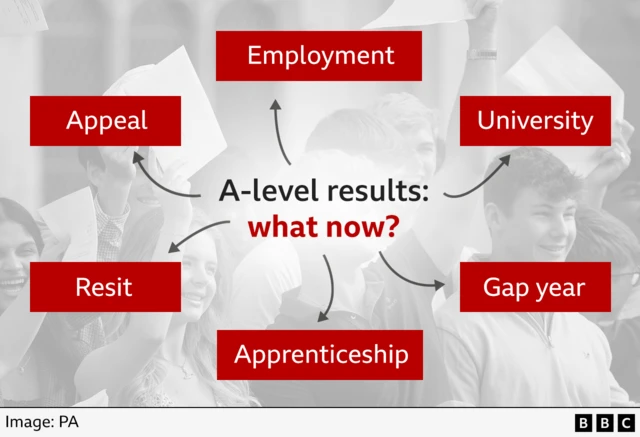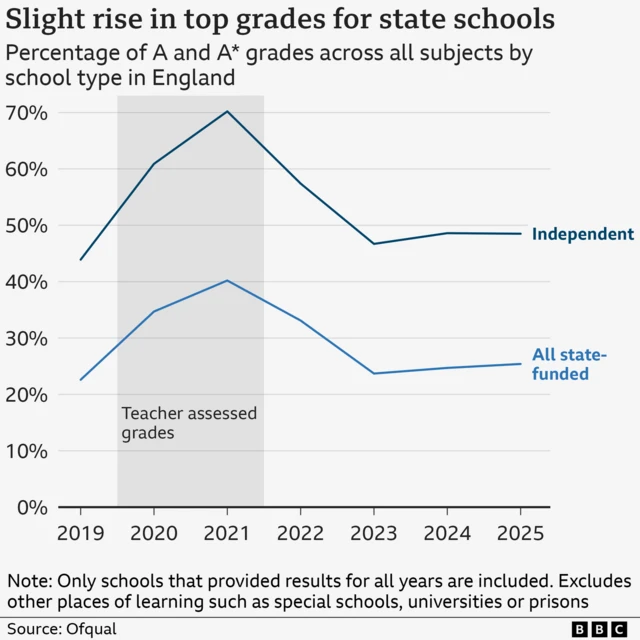As results day draws to a close, the future for thousands takes shape - congratulationspublished at 17:22 BST 14 August
 Imogen James
Imogen James
Live reporter, reporting from Leeds
 Image source, PA Media
Image source, PA MediaThere have been a lot of elements to today, and I bet a lot of you are glad it's over. Speaking of over, our live coverage is also drawing to a close.
Results were released today for BTec nationals, T-levels and A-levels, as hundreds of thousands learned the outcome of their exams, prompting confetti, tears and smiles.
Key takeaways from the stats show boys beat girls in terms of top A-level grades for the first time since 2018, the top A-level grades rose again, and there's been another increase in the number taking T-levels in England. Interest in arts subjects fell, with a rise in business and economics studies instead.
We heard from a lot of students, including a boy celebrating securing a place at university to study music, and being cancer-free, as well as a girl who got into university while balancing her studies with being a part-time carer.
Clearing remains open for those who missed out on the university course they want. If you didn't get what you wanted, check out our interactive guide.
Of course, not everyone wants to go to university. Apprenticeships, gap years, and work are all options. We spoke to a zoo keeper and a celeb photographer who told us about their career paths.
It's age old advice, but try not to stress now about what is done. I did university AND an apprenticeship, because life has so many options.
I think I'll end with one big congratulations to all of you - now go celebrate! We'll see other students this time next week, for GCSE results. If you aren't super keen to be at the pub, here's five key takeaways complied by our education correspondent.
Bye for now.


